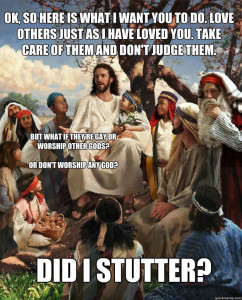 Alternative clergy is one thing, but what about alternative lifestyles? One of our recent ordained ministers asked what the Esoteric Interfaith Church’s policy is regarding gay marriage, aka same-sex marriage. He has been asked to officiate a same-sex wedding next month.
Alternative clergy is one thing, but what about alternative lifestyles? One of our recent ordained ministers asked what the Esoteric Interfaith Church’s policy is regarding gay marriage, aka same-sex marriage. He has been asked to officiate a same-sex wedding next month.
The church has always believed that ordination does not mean we control your every move, in fact we encourage autonomy and the founding of your own church. If you are asked to officiate a same-sex wedding in a state where it is legal, that is fine. As long as you are not breaking the laws of the land, you are in good standing with the church / seminary. But what about the laws of the Bible?, some have asked.
Below are some links proving that the Bible does NOT condemn homosexuality, does not call it an abomination. As you read the proof, keep in mind these facts from the scientific and medical fields:
Homosexuality sometimes runs in families, as LGBT people will tell you. Science has proven it has genetic elements. Just google “gay gene”.
Teenagers and pre-teens who have never been sexually active realizing they’re gay when they constantly have crushes on members of their same gender proves humans are born with their sexual orientation. It is not a “learned” behavior.
Here are the links:
The Bible Does NOT Condemn Homosexuality
http://notalllikethat.org/taking-god-at-his-word-the-bible-and-homosexuality/

